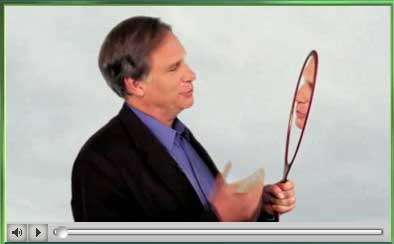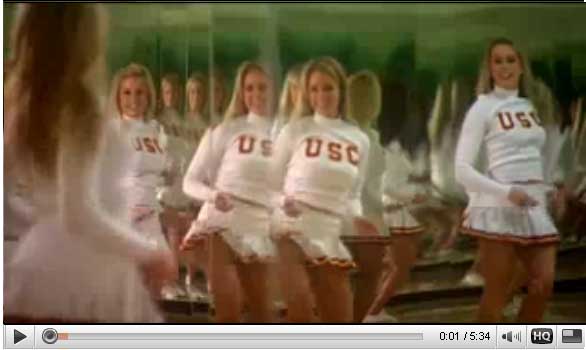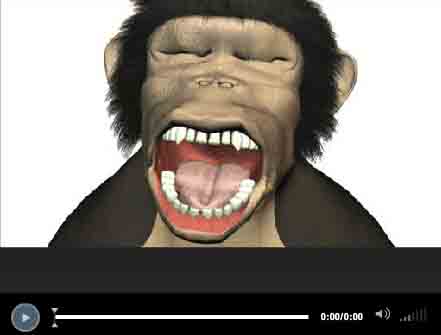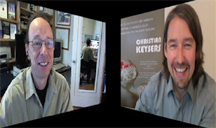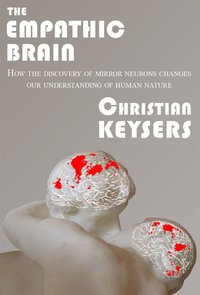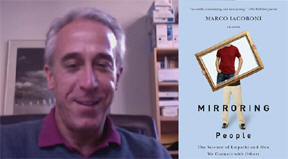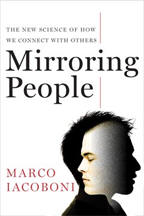|
|
|
Mirror Neurons
Wikipedia Article on Mirror Neurons
(Has an extensive listing about Mirror Neurons)
Facebook Mirror-Neuron Page
Article:
Mirror Neuron Mechanism in primate brains
About Mirror Neurons "The evolutionary roots of human mirror neuron systems reach back millions of years, says Michael Arbib, director of the USC Brain Project, and author of "From Action to Language via the Mirror System." The evolution of language appears to be connected to the mirror-neuron-rich area of the brain associated with movements of the hands, he says, while the evolution of our empathic mirroring capabilities seems to be associated with regions of the brain governing movements in the face." "Mirror neurons had an inconspicuous start, says
Daniel
Dennett, director of the
Center for Cognitive
Studies at Tufts University and the author of "Darwin's Dangerous Idea," and
other books about evolution. "All evolutionary innovation begins with a
mistake," he says. Some genetic mutation may have led to a misfiring set of
neurons that enhanced hand-eye coordination. This "programming bug," as Dennett
calls it, must have conveyed an advantage amplified by natural selection. And
once simple mirror-neuron networks were established, he says, "they may well
have played a big role in the evolution of empathy, and imitation, and social
understanding."
Tracing the Origins of Human Empathy
Dr. Giacomo Rizzolatti - THE DISCOVERY OF MIRROR NEURONS
Dr. Dan Siegel - On The Basis of Empathy
- Mirror Neurons
"Iacoboni's team at UCLA collaborated with Itzhak Fried, a neurosurgeon who was implanting electrodes into epileptic patients in an effort to find the origins of their seizures so they could be surgically treated. Once those electrodes were in place, and after patients gave permission, it was possible for Iacoboni to test individual human neurons for mirroring. He found mirror neurons in several parts of the human brain." Marco
Iacoboni is a neuroscientist and professor of
psychiatry at UCLA, where he directs the
Ahmanson-Lovelace Brain
Mapping Center. "We are hard-wired to feel what others experience as if it
were happening to us," he says." "Alison Gopnik, a developmental psychologist at U.C. Berkeley's
Institute of Cognitive and
Brain Sciences, flatly labels mirror neurons a myth. But her voice is
drowned out by an academic chorus of mirror hosannahs. U.C. Berkeley critic
Gopnik, the significance of mirror neurons "is blown way out of proportion." She
says their power to explain consciousness, language and empathy "is just a
metaphor."" |
||||||||||||||||||
|
||||






